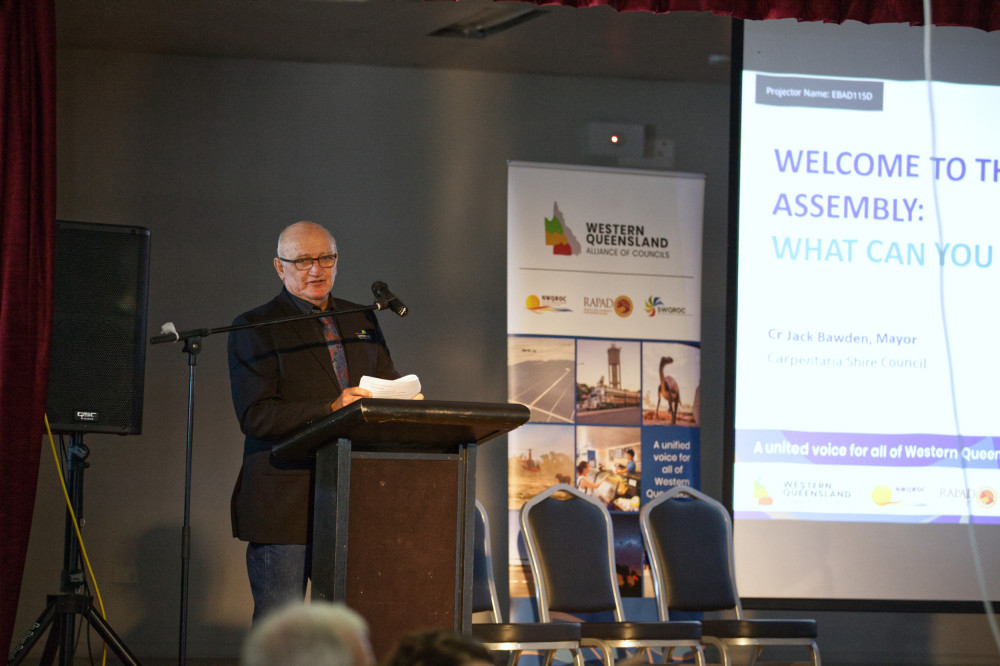MAY 17 – 19 the Western Queensland Alliance of Councils met together to discuss the future of the West.
183 representatives from Burke, Carpentaria, Cloncurry, Doomadgee, Etheridge, Flinders, McKinlay, Mount Isa, Richmond; Barcaldine, Barcoo, Blackall-Tambo, Boulia, Diamantina, Longreach, Winton; Balonne, Bulloo, Maranoa, Murweh, Paroo, and Quilpie attended with the theme of “Building Blocks for the Future” and a focus on roads, digital connectivity, housing, and transport.
There were people from Local Government, State and Federal; there were also representatives from business and interest groups such as RAPAD.
The WQAC has been an organisation informally for a number of years but held its first conference in Longreach last year.
Its stated purpose is to push the big issues in Western Queensland.
The CEO of RAPAD, David Arnold said this meeting, held in the Richmond Shire Hall, was particularly important as it featured Mark Coulton the Federal Minister for Regional Health, Regional Communications, and Local Government, he was able to hear the concerns west Queenslanders have for the region going forward.
He said one of the key takeaways was that the event was decidedly outcomes-focused, this included the implementation of a research report into housing shortage conducted by the Regional Housing Institute and is to be ready by mid-July.
The event opened with Minister for Regional Development and Manufacturing and Minister for Water Glenn Butcher highlighting the importance of Western Queensland to the State’s economy and acknowledging the strength and determination of Western Queenslanders through the adversity of drought and the pandemic over the past 12 months.
Another important point was the Regional Australia Institute (RAI)’s campaign to capitalise on the trend of people moving bush, and to attract more to the regions, and Susan McDonald, Senator for Queensland, acknowledged that the WQAC is now “one of Australia’s most powerful lobby groups”.
Mr Arnold said while the event was outcomes focussed, he was glad to have so many eyes on the event.
“While raising whinges and concerns isn’t going to get the results we want, it is an important step forward,” he said.
The Local Government Grants Commission Chair Paul Bell attended and told the attendees he wished for more opportunity for grants for councils at a local level.
Mr Arnold expressed how important this was stating if 10 per cent of a council’s income is rates, it’s not going to be enough and you will have to look for funding elsewhere, that’s where Government grants come in.
“It’s just unsustainable,” he said.
Other important issues discussed were air transport and digital connectivity.
Mr Arnold said the issues would not be solved overnight and that they may very likely be discussed in some capacity in WQAC forums in the future.
“What we can get done over the next 12 months will inform the theming of the WQAC next year,” he said.








